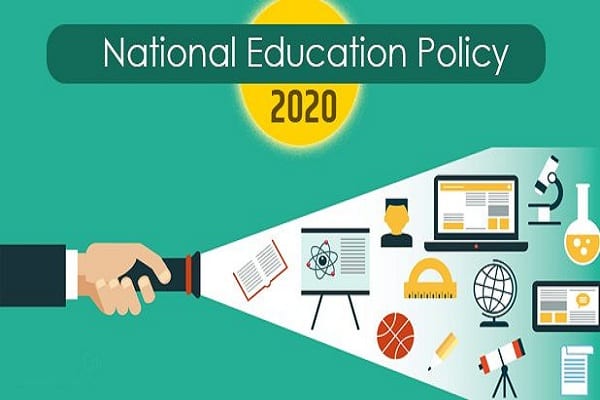What is NEP 2020?
The new NEP 2020 National education Policy approved by the union cabinet on 29th July 2020, replaced the previous policy of 1986. The policy’s aim is to transform the structure of elementary and higher education in India by 2021. The policy aims at the following:
- All courses to be taught in mother tongue until class 5 and beyond, and the emphasis on foreign languages and Sanskrit. This focuses on the preservation of the various languages and their uniqueness in India. Several countries abroad have the same policy.
- The prevalent 10+2 structure of School education to be replaced by the 5+3+3+4 model. This new model will be implemented as Foundational stage (age 3-8), Preparatory Stage (age 8-11), Middle Stage (Age 11-14), and Secondary Stage (age 14-19). The secondary stage inculcates multi-disciplinary learning and prepares the student for higher education with multiple options of subjects to gain interest.
- The higher education to be a 4-year multi-disciplinary bachelor’s degree with multiple exit points. Certificates will be issued after each academic year of study for the student to have an option of exploring new pathways. The purpose of this strategy towards higher education is to give the students an all-roundedness towards vocational training and professional expertise to improve their skills to satisfy the future careers they pursue.
- To internationalize higher education in India by letting foreign universities set up campuses in the country.
How to prepare for the NEP 2020 transition?
Although the implementation of the NEP 2020 will take some time to reach changing College education structures, some colleges in India already have multi-disciplinary learning in the bachelor’s degree. The main approach of the current students about to start their higher education should be aimed at getting as many different approaches towards a concept or topic as possible.
Some colleges in the country support taking up inter-disciplinary subjects while others encourage online platform study and courses (MOOCs). The boon of the 21st century is the limitless knowledge that can be gathered from online platforms. Guided courses with weekly assignments and a course completion certificate help both in profile building of the students and getting access to education contents that are not included in their college subjects. These courses are designed in a way to make the education flexible by providing online lectures that can be viewed anytime around the week.
How do the online platforms help in multi-disciplinary learning?
The Online platforms create the lectures by providing multiple interest points for the students to diverge into other modules but keeping the courses’ learning objective. The students can browse different directions of study or can simultaneously attend multiple topics of their own interest. These platforms let teachers interact with students using online learning tools. This amplifies the interest of the student to diversify their knowledge and gather information on multiple sub-topics. The course structure and fixed assignments keep the students active during the course and provides a practical experience of the subject.
Some online platforms provide a holistic learning experience to school students. These interactive platforms help create and deliver courses, include resource libraries, provide tools for collaboration etc. Some of them are:
- Adobe Captive prime
- Docebo
- SAP Litmos
- LearnUpon LMS
- Mindflash
However, for sophisticated education, E-Modules are more vastly available across different online education sites. The topic selection can be done according to the desired 21st century skills by the students and the certificates can be earned if the courses are paid for, or the course can be completed for free, albeit without a completion certificate. Once the topic is selected, these courses offer different directions of further study which can be taken up simultaneously. Some of the online platforms are:
- EdX
- Coursera
- Acadru
- NPTEL
- Udemy
Multi-disciplinary degrees are not yet available from Indian universities on E-learning platforms. However, upon the proper usage of the online E-modules providing directed courses on diversified topics, one can gain multiple viewpoints on a topic. To learn more about college E-learning and how to combine courses to gain a multi-disciplinary viewpoint towards a topic, one must visit https://acadru.com/. They provide a clear idea about unbound education and how to go forward with the New Education Policy for the future of learning in India.
Apart from this, if you are interested to know more about Team Work Can Skyrocket Success then visit our Education category.


